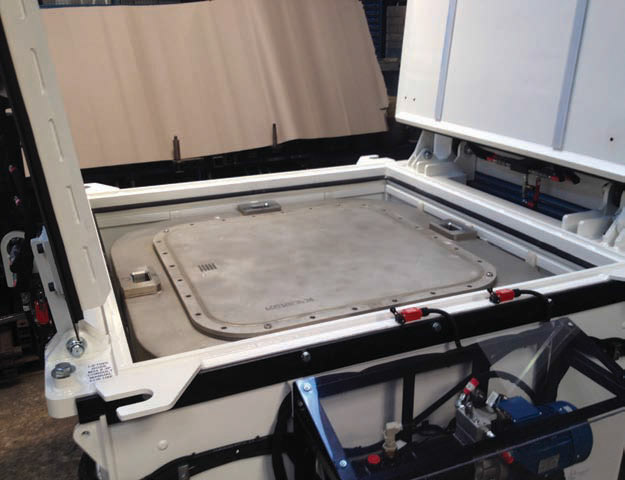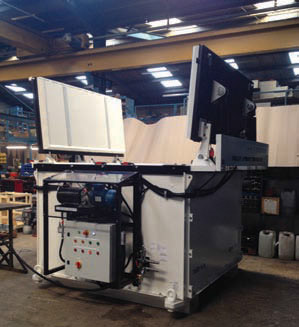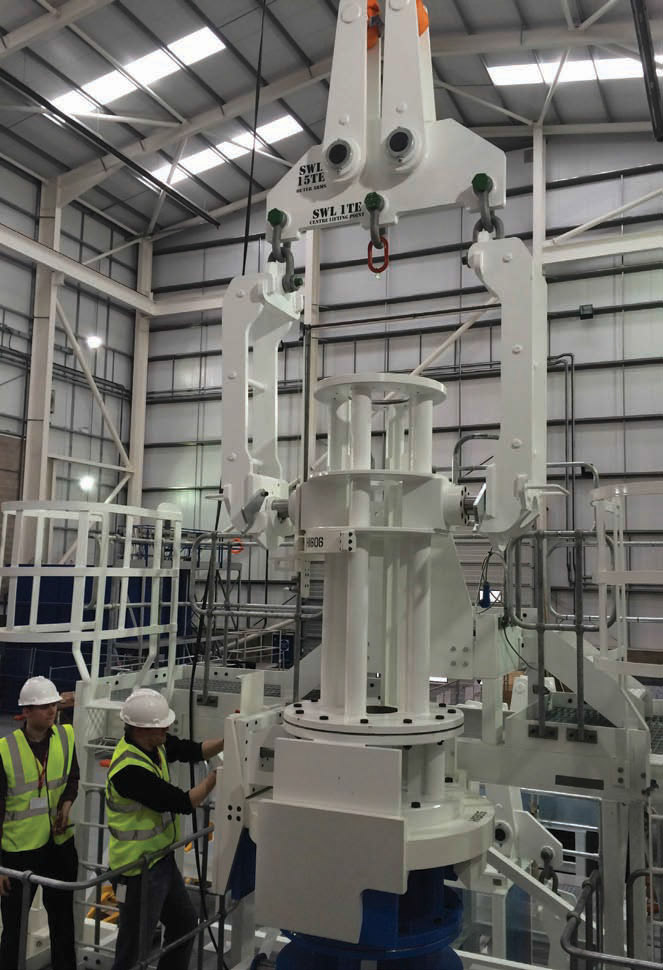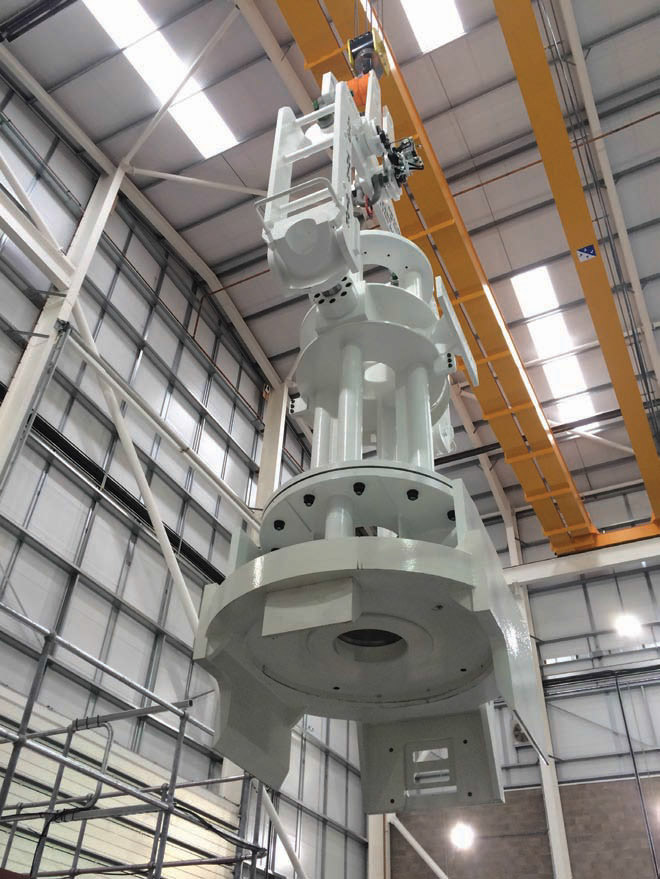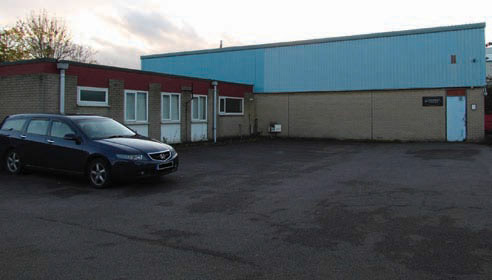The next stage
21 March 2017Penny Hydraulics’ specialist division Penny Nuclear is currently focusing on decommissioning projects, with more expansion of the business to come. Daniel Searle reports.
Talking to Simon Pykett, general manager at Penny Nuclear division, in early March, the company had just secured a four-year contract to work with the Sellafield nuclear power plant in Cumbria, UK.
The company, a manufacturer of mechanical handling equipment based near Sheffield, will supply the manufacture, inspection, test and delivery of around 750 drum stillages to assist the decommissioning process at the plant. The equipment will be used for the transportation and storage of waste inside concrete-lined drums.
The contract was won in December, says Pykett, and has a value of around £1.8m. It represents the next stage in the expansion of the Nuclear arm of Penny Hydraulics’ business, which was set up seven years ago. It was established on the foundation of the company’s other businesses, which focus on mechanical handling equipment, such as vehicle-mounted cranes, goods lifts, and lighting hoists.
“We are very much focused on mechanical handling and lifting equipment,” says Pykett. “We have recently supplied the Sellafield plant with four lifting beams and dedicated parking stands, for handling flasks up to 25t. The project’s success gave everybody the confidence in us to deliver quality products, and gave us the reassurance to win further contracts.”
That was in 2015, for the Dragon Waste Project at Sellafield, which involved the receipt of waste material in licensed transport for encapsulation and long-term storage. Penny Nuclear’s contract was worth around £400,000, and involved providing Sellafield with a 3D Computer Aided Design (CAD) model of the entire project, to confirm that the proposed design was suitable prior to the manufacturing or testing stage.
The manufacturing stage involved the construction of the largest SWL item Penny Hydraulics has produced, a 25t Transport Package Lifting Beam—which was proof-loaded to 50t and designed to remain safe at 75t.
Prior to this year’s contract with Sellafield, Penny Nuclear installed a Fuel Element Debris (FED) retrieval system at Bradwell Power Station, comprising a hydraulic grab, overhead crane and hoist, to enable the retrieval, sorting and storage of FED. The project was a success, with the company’s equipment used throughout 12 vaults at the plant, saving around £10m from the UK’s decommissioning budget.
In addition to this, working with Magnox at a number of their 12 sites led to an interesting modification of one of the products in Penny’s portfolio.
“Storing nuclear waste is expensive, as it has to be monitored over the years,” says Pykett. “So compressing the waste to achieve a higher packing ratio helps to reduce lifetime costs. We’re currently finishing the design of a hydraulic press for Magnox, based on our forklift tyre presses, for compressing dry waste—it compresses chopped up metal, so there is a lot of space amongst it and therefore a lot of scope for compression.
“The presses will be manufactured in the next two months. They press with a force of up to 150t and will be used on 210-litre drums. There are ‘supercompactors’ available on the market but these offer thousands of tonnes of force and cost hundreds of thousands of pounds, which is more than is required.
“Ultimately, compressing the dry waste should save the Nuclear Decommissioning Authority around £9m.”
Part of the reason for focusing on decommissioning projects, says Pykett, is that many nuclear power projects were set up before Penny Nuclear was established in 2010, and so working on setting up new plants has not been an option so far. However, with new plants set to be built—albeit with some current uncertainties over funding and schedules—there will be an opportunity for the company to get involved.
Penny Nuclear is also looking into the defence sector, says Pykett: “We’re not currently involved, but it is the next logical step for us—although it will take a few years yet. We’re initially targeting decommissioning—the UK has agreed to renew the country’s nuclear capabilities, so old submarines will need to be decommissioned.”
As part of its expansion into new sectors, Penny Hydraulics is set to open a £1.5m expansion of its site this year.
It will feature an open-plan design office and increased production space, including a dedicated nuclear production facility with machining, fabrication and testing areas, as well as a 5t overhead crane. “This will allow us to maintain their ongoing business while conducting the necessary research to move forward,” says Pykett.
A further part of preparing for the coming demands of the nuclear sector involves training the next generation of engineers. “We have been looking at the skills shortage,” says Pykett, “and we have taken on apprentices to train up. It works well as we have enough ongoing work for the company until the apprentices are trained up and ready for the next stage.”
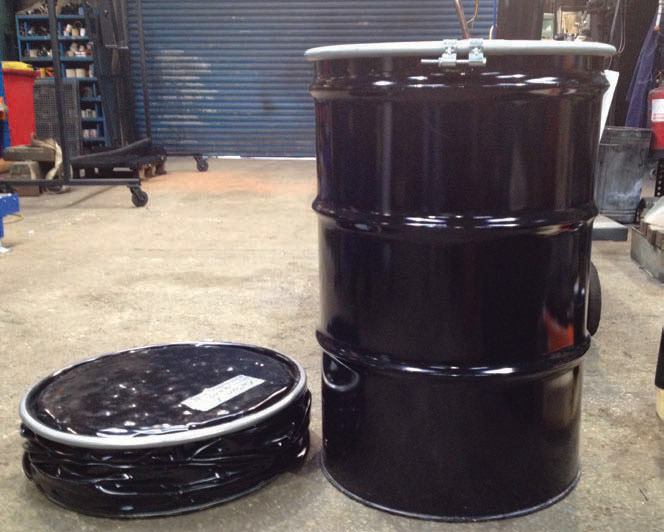 Penny Nuclear has designed a press for compacting drums of dry waste, to reduce long-term storage costs.
Penny Nuclear has designed a press for compacting drums of dry waste, to reduce long-term storage costs.
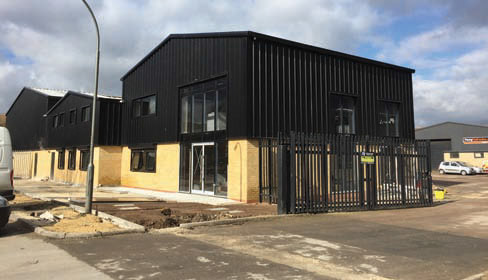 Penny Hydraulics’ premises before the renovation, and how it will look once completed later this year
Penny Hydraulics’ premises before the renovation, and how it will look once completed later this year
 Penny Nuclear has designed a press for compacting drums of dry waste, to reduce long-term storage costs.
Penny Nuclear has designed a press for compacting drums of dry waste, to reduce long-term storage costs.
